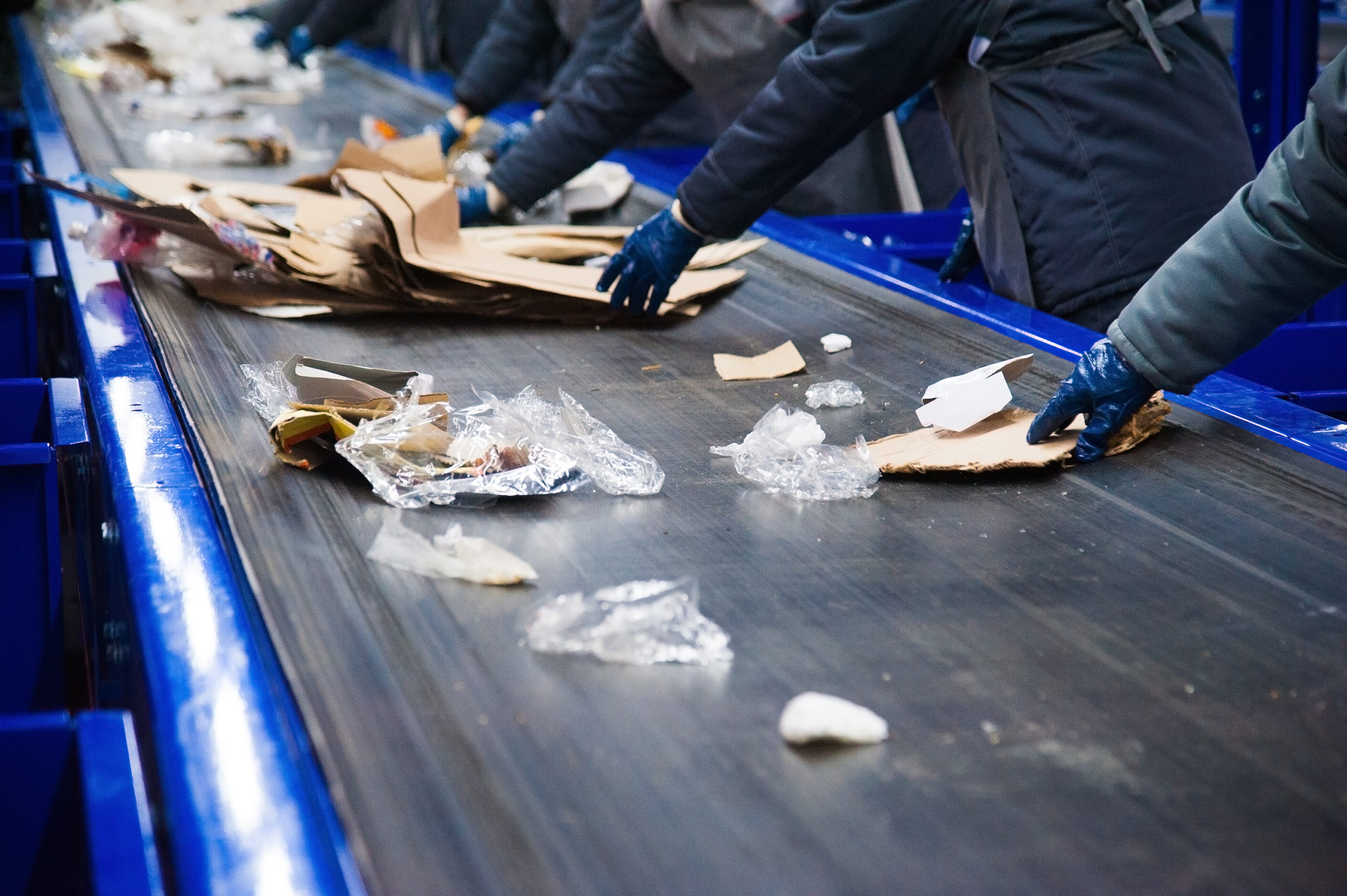With so many of us trying to make a conscious effort to recycle more and help the planet, putting items in the recycling bins has become a common habit. We often put bottles, boxes, paper and plastic into different bins whilst on autopilot, without ever really thinking about how they’re recycled at the end.
Data indicates that the average person in the UK throws away around 400 kg of waste each year; the equivalent of seven times their body weight. Of the 26m tonnes of waste produced in the UK, 12m tonnes are recycled, and 14m tonnes are sent to landfill sites.
We might think that once we put our recycling into its allocated bins, we’ve done our part. However, there are many regularly used items that actually don’t belong in recycling at all…

Used pizza and takeaway boxes
You’ve just finished a lovely takeaway and then you decide to do your bit and put your recycled boxes into the cardboard recycling bin. Great intentions but unfortunately used and greasy takeaway boxes can’t be recycled – so much so that some waste disposal services will refuse to collect your bin if these items are present.
Greasy takeaway boxes are an issue for recycling, as when cardboard is recycled it gets turned back into pulp and food grease can affect this. To avoid grease contaminating the recycling process, cut the clean tops of your pizza boxes and put the bottoms in the bin.
Used paper coffee cups
Throwaway and single use paper cups used for coffee, tea and other drinks seem like they should be easily recyclable – but they’re not.
Most disposable cups used for hot liquids come with a plastic coating to make it more durable, and this is very difficult to separate from the paper when it comes to recycling, pulping and reprocessing.
If you know your daily coffee habit isn’t going to be changing, then you might consider using a reusable mug to be kinder to the environment. Many coffee places including big chains will offer discounts and incentives for bringing your own cup to be refilled.
Paper towels
To put it simply, paper towels are either contaminated waste or are heavily manufactured, so always end up in landfill.
The majority of paper towels produced are from paper, a recyclable material, however because they are heavily pulped when manufactured the fibres are too short to be recycled again. Additionally, when recycled materials are used for paper towels because they are contaminated in the home or office, and when used they are broken down further and cannot be used for anything again.
Used gift wrap
Wrapping paper seems like it should be easy to recycle, and it’s one that many of us would throw into our paper recycling without another thought.
However, unless it’s simple brown wrapping paper like the one you would see in your local Post Office then it’s most likely not being recycled at all. Wrapping paper is often dyed, laminated and can even come with glitter, plastics and non-paper additions. This alone can make it unfit for recycling, but combine that with wrapping paper usually having sticky tape attached make it near impossible to recycle.
Plastic cutlery
Takeaway food often comes with plastic disposable cutlery, which many of us put into our recycling thinking it will be recycled properly. In fact, 60% of people said that they would put plastic cutlery into their mixed recycling in the hope that it would be processed anyway. Whilst that has the best of intentions, it won’t be recycled.
Often recycling plants can mistake small plastic forks and spoons for paper, and then this can be an issue for sorting, contaminating recycling, and even clogging machines.
Plastic bags
It’s easy to think that plastic bags could easily go in the plastics bin to be recycled, but they can’t and in fact they are one of the hardest things to dispose of.
Recycling materials are sorted at plants by machines and conveyor belts, and plastic bags can present a problem for that machinery. Plastic bags can end up wrapped around machinery parts including the conveyor belt and stop the entire process from working effectively.
Plastic bags that end up at landfill can also be an issue, as they often disintegrate into small pieces which can be a problem for wildlife and the environment.
Switching to reusable bags or using your plastic bags again is a much better option than throwing away plastic bags.
Plastic bottles
Recycling plastic bottles is nothing new and for the most part, many can be turned into something new. Plastic bottles of all kinds are usually made from two types of plastic that are easy to recycle – PET and HDPE.
Only 59% of recyclables from the bathroom are actually recycled, and this is a combination of people not realising what can be recycled or mistaking things for recycling that actually can’t be turned into anything new.
The one common mistake that many people make is forgetting to rinse and clean plastic bottles such as shampoo, conditioner, shower gel and soap dispenser bottles or forgetting to remove the plastic dispenser nozzles.
Whilst clean plastic bottles are a no brainer for recycling, dirty ones can contaminate other bottles and mean dirt or leftover product gets into recycling machinery and can cause issues.
Businesses switching to hand dryers from paper towels can save thousands of kilograms of waste going to landfill each year
With each paper towel weighing 2 grams it doesn’t take long for even a small business to generate a vast amount of paper towel waste.
Our online calculator can accurately tell you how much paper towel waste your business is generating, we can also give you estimated running costs for an Airdri hand drying solution.
For example, a typical medium sized office will require 7 hand drying solutions that over the year will result in 1,120kg of paper towel waste going to landfill. This is the equivalent of 93 office chairs!
Use our online calculator to see how much you can save.


